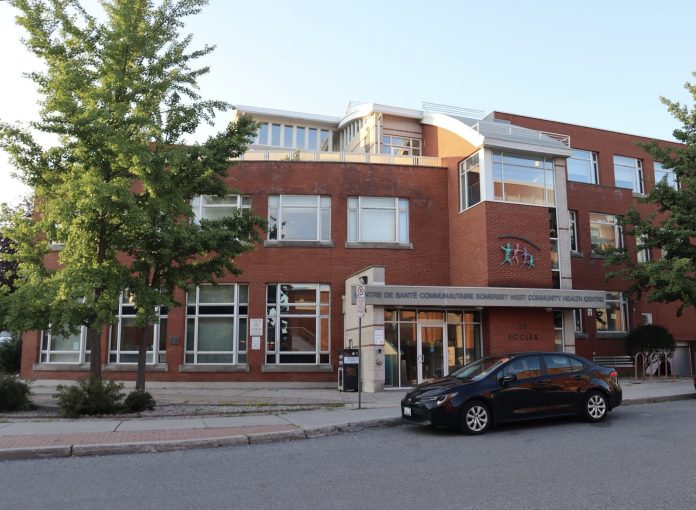Submitted by Joel Harden, MPP for Ottawa Centre
As I write these words, I’m traveling home from British Columbia after visiting family, and my heart is full. Why?
Because the last ten days have been about connection to loved ones and nature, something core to our sense of worth as human beings. Research suggests our social and environmental connections are critical for mental and physical health.
But many lack those connections. In fact, some have been deprived of social connection and support given various forms of harm and abuse, or rejection for being who they are.
And so, as their traumas accumulate, some escape through addictions to illicit drugs. Given the toxic supply of drugs sold in our streets, they could die from an overdose.
That’s where the case for Consumption and Treatment Services (CTS) comes in. Last year, the Somerset West Community Health Centre (SWCHC) prevented 487 overdoses. Now, the Ford Government has said their CTS site needs to close.
Why? Because of a rise in crime, according to Health Minister Sylvia Jones, and an increased presence of needles in parks and near schools.
Jack Hauen, a reporter for The Trillium, asked Minister Jones if research had been done about “how many people will die as a result of this decision.” Pretty direct question there.
“Jack, people are not going to die”, the Minister replied, “they’re going to get access to service.” She then went on to talk about new addiction services to come at some point, and applications she had seen from potential providers.
That comment shocked health practitioners.
In Ottawa there are massive wait lists for addictions treatment — like at Rideauwood Family and Addictions Services — which I have noted in this column before. No amount of money promised at the last minute will fix that right away.
Undeterred, the Minister continued: “I do not call watching someone inject an illicit drug health care in the province of Ontario.” So what is health care for addictions?
Letting people die from toxic drugs as they wait for treatment? No. This where harm reduction is crucial. And as one commentator noted, it exists for alcohol.
Every hour in Canada someone overdoses, and (according to Health Canada) CTS sites prevented 55,693 lethal overdoses between January 2017 to January 2024.
But this is not enough. That’s why we see the degree of suffering in our streets, which closing CTS sites won’t solve. It will get worse.
A better question Minister Jones could ask is why people seek out illicit drugs. That requires addressing the roots of addiction, and the support needed to help people find a healing path.
One option is Counseling Connect, a local service that was created in 2020 to help people with acute mental health needs get prompt access to psychotherapy treatment.
The program offers three free sessions, and aims to book (via its website or by phone) within 48 hours. It currently supports over 700 people a month, and serves people in multiple languages.
MPP Chandra Pasma and I have been pushing for regular provisional funding of Counseling Connect which currently runs on a budget of $550,000 from Community Health Centres. Much more could be done with better funding from Ontario.
The same is true for housing providers, like Options Bytown or Salus, that could offer more for people struggling with addictions and homelessness. Recent federal announcements for rapid housing are nice, but not enough; Ontario can do far more.
We need support, not cruelty, for neighbours who use drugs. There is local expertise to get us there, but the Premier needs to fund it, and rescind his harmful attacks on CTS sites.
